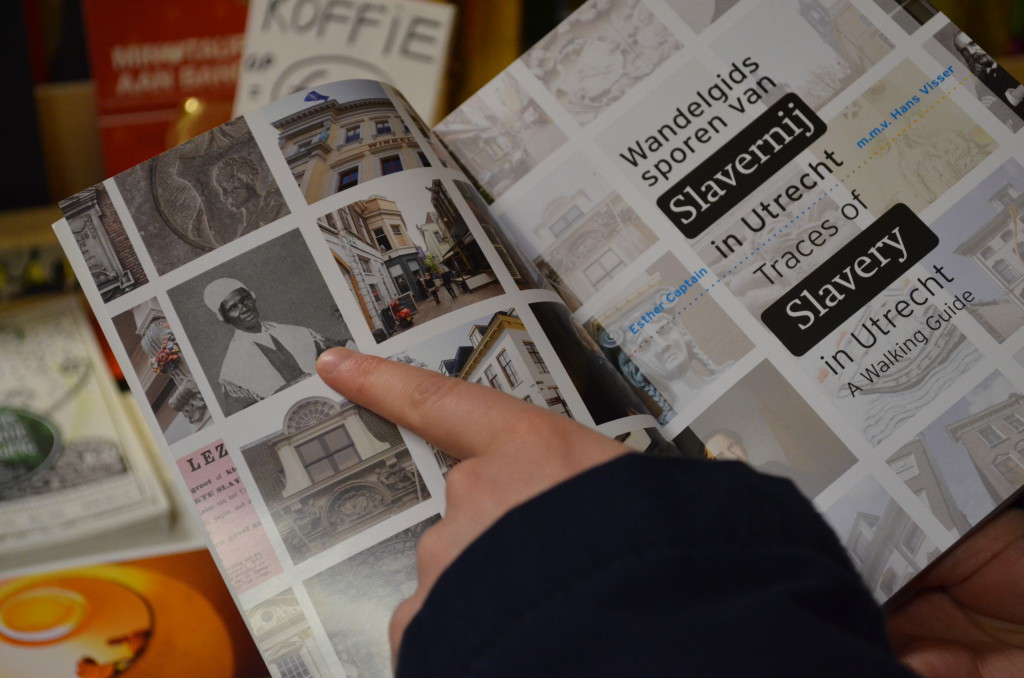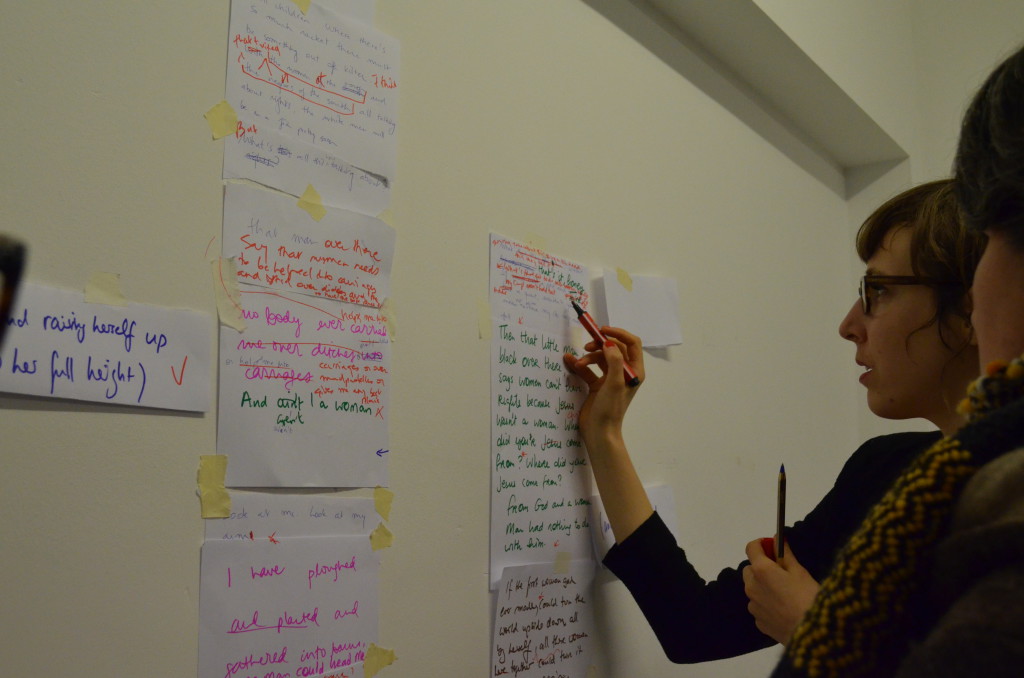Regimes of Memorizing #2
2014 / 20 – 23 January / Workshop at Casco, Utrecht and SMBA Amsterdam in the context of the exhibition ‘Made in Commons’ by Stedelijk Bureau Amsterdam and Kunci Yogyakarta.
The Read-in workshop (re)consider the research and references of the oral histories connected to Sojourner Truth’s speech, “Ain’t I a woman”, delivered in1851 at a women’s rights convention in Ohio/US.
Part of the workshop: searching for traces of Sojourner Truth in Bookshops (Svannah Bay and Rooie Rat) and Libraries in Utrecht
Part of the workshop: collectively trying to remember transcriptions of Sojourner Truth’ speech: Ain’t I a woman
Studying divergent transcriptions and witnesses of Sojourner Truth’s speech “Ain’t I a woman”, delivered in 1851 at a convention in Ohio, the Read-in collective invited to experiment with techniques of (re/dis)locating text, learning by heart, (un)disciplinary pedagogies and listening intonationally.
In the context of the exhibition ‘Made in Commons’ by Stedelijk Bureau Amsterdam and Kunci Yogyakarta and in collaboration with Casco, Utrecht, Read-in likes organized a workshop in which we continued our research into the political, material and physical implications of collective reading and the situatedness of any kind of reading activity.
In this workshop we focused on the links between reading and memorizing and experimented with memorizing collectively, referencing the varied aural/oral histories of Sojouner Truth’s speech, “Ain’t I a woman?”, (1851, Ohio).
Accompanied by:
Kristien van den Brande (writer-performer, Brussels) and Mari Matre Larsen (choreographer, Amsterdam) are members of a larger group of people memorising books of their choice in the context of the project “Time has fallen asleep in the afternoon sunshine” initiated by choreographer Mette Edvardsen. Together they form a library collection consisting of living books.
Katrine Smiet: PhD-researcher at Radboud University Nijmegen. Her research is about the history of feminist ideas, with an emphasis on how theories and ideas travel – historically, geographically as well s socio-politically. By examining how the figure and the story of Sojourner Truth has been taken up in different moments, locations and academic disciplines, the research explores how feminist theorizing on intersectionality and race/ethnicity has developed.

